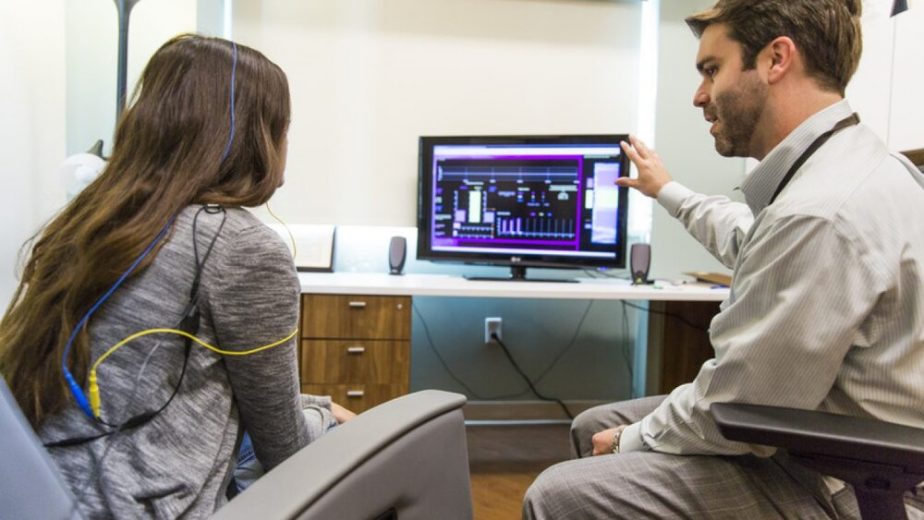Do you struggle to retain your focus when reading? Have difficulty falling asleep or remaining asleep at night?
Perhaps you struggle to find the right words in conversations. Or you may be suffering with your academic, domestic, or professional performance. Even worse, you may be experiencing anxiousness.
Neurofeedback may be the ideal treatment for you if you have any of these problems and would like to solve them without the use of drugs. Please get in touch with J. Flowers Health Institute if you have any questions regarding treatment.
Hundreds of published researches have demonstrated that this non-drug approach for enhancing brain waves helps patients with sleeplessness, anxiety, concussion, memory loss with age, addiction, and ADHD symptoms.
Why Neurofeedback Can Be Beneficial?
Electrical impulses, or brain waves, travel through the brain and are responsible for all of your abilities, including walking, typing, cooking, and driving, as well as eating, using the restroom, perspiring, and experiencing fear.
Brain waves impact how we feel, our interactions with others, the quality of our sleep, and our level of organization.
Harmonized brain waves are necessary for healthy mental health and performance.
Neurofeedback is a form of biofeedback that helps you spontaneously synchronize your brain waves (without medications). During neurofeedback sessions, the brain “learns” to bring excessively rapid or slow waves back into the usual range. You relax and watch a movie while your brain waves are monitored.
When your brain waves are in the ideal range, you are rewarded by being able to watch the movie uninterrupted.
As soon as this occurs, you (or your brain) are rewarded by the video continuing without interruptions or fading.
When Your brain learns to optimize the brain waves that are linked with being calm and concentrated, just like a dog “learns” to catch a ball to obtain a reward. In other words, your brain is rewarded when your brain waves are in harmony (as measured by EEG feedback).
Neurofeedback therapies may also be advantageous for those with:
- Addictions
- Rage management
- Persistent tiredness syndrome
- Eating disorders
- Headaches/migraines
- Learning disabilities
- Obsessive-compulsive disorder (OCD)
- Oppositional defiant disorder (ODD)
- Pain management
- Insomnia
How Should You Prepare For Your First Neurofeedback Session?
Preparing and planning for your neurofeedback session can aid in achieving treatment objectives. Before you settle into your comfortable neurofeedback chair, here are a few suggestions to consider:
- Get adequate sleep the night before
- power off your cell phone and other electrical gadgets
- prevent or reduce caffeine consumption that day
- Shampoo so that your hair is clean and dry
What Should I Ask My Healthcare Professional?
Creating a list of questions before meeting a healthcare professional or beginning a new treatment program is advisable. You may have the following questions before beginning a 12-week neurofeedback program:
- How long do therapy sessions last
- How frequently are therapy sessions scheduled?
- Can I return to work immediately following a session?
- What am I need to do before each session?
- Will there be tasks required between sessions?
- How quickly will I learn whether the treatment is effective?
- How much will the therapy cost?
- Does insurance pay for this treatment?
- Can I use my normal meds while undergoing treatment?




